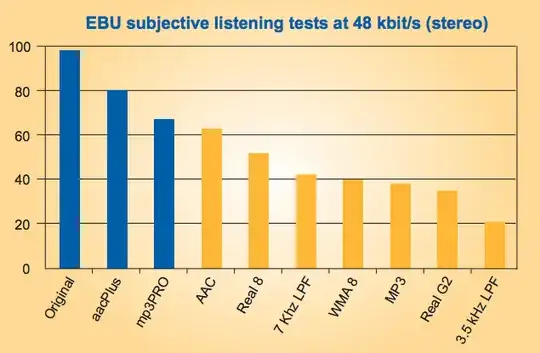The best target audio format may be "the best" by certain criteria:
- sound quality,
- device/software compatibility,
- file size.
Lossless formats
To achieve maximal sound quality lossless formats are recommended.
These formats support PCM (*.wav, *.flac, *.aiff, .alac,...) and DSD (.dsf, *.dff, *.iso [sacd iso]) audio stuff.
Lossless formats store audio stuff without altering.
File size compression
To reduce file size, compressed formats are used.
Compressed formats are:
- lossless: *.flac, *.ape, *.m4a(ALAC), MLP,... lossy: *.mp3,
- lossy: *.m4a(AAC), *.ogg, ...
Lossy formats
Lossy formats lose part of audio information, but have significant file size reducing.
As rule, very popular mp3 have high sound quality at high bitrates 256...320 kbps.
AAC format developers, promise better sound quality of AAC than mp3. But, I suppose, it should be checked individually for each of your audio systems.
AAC supports multichannel configuration. Though it is not so important for mobile devices, that have stereo outputs (headphones) rather.
As rule, mp3 and AAC formats have no metadata support issues.
Audiophile formats
For audiophile applications FLAC and ALAC may be recommended.
If you have DSD capable audio device, DSF file may be better choise, because it supports metadata (text and artworks).
Some of digital audio players support *.iso [sacd iso] images. However these files can contains 2 versions of single album: stereo and multichannel. It consume additional hard disk space. And it may be important for stereo mobile audio device with limited hard disk space.
The issue may be solved via extracting stereo tracks to DSF or FLAC.
Also multichannel music files may be downmixed to stereo.
Read details about audio formats and look at sound quality researching links here.
